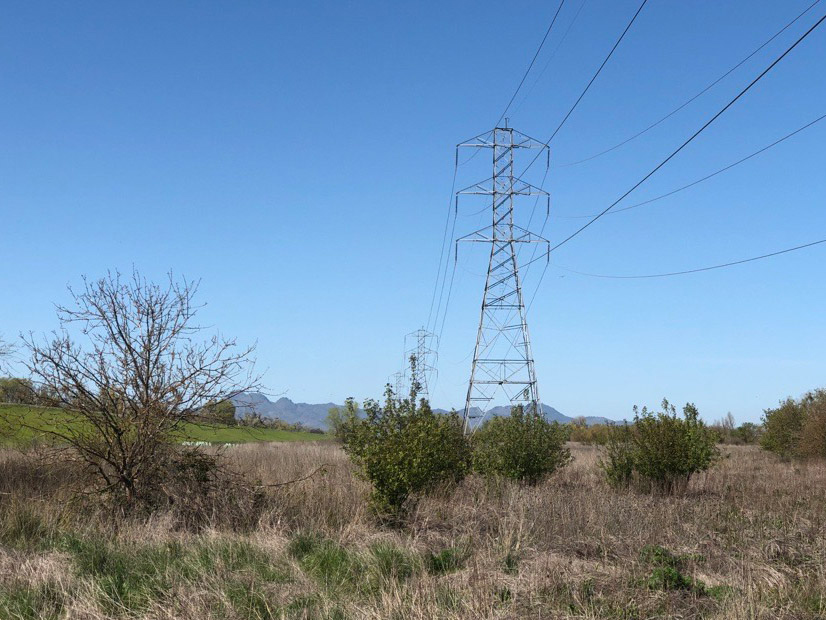
The CAISO Board of Governors and the Western Energy Imbalance Market (WEIM) Governing Body on Thursday agreed to extend controversial wheel-through rules for two more years while naming new members to WEIM’s Governance Review Committee (GRC).
CAISO enacted the wheeling provisions prior to summer 2021 to help avoid capacity shortfalls like those that caused rolling blackouts in August 2020.
The new rules sought to ensure that transfers from the Pacific Northwest to the Desert Southwest through CAISO territory did not take precedence over capacity needed to serve CAISO native load. One provision required non-CAISO entities to designate high-priority wheel-throughs needed for reliability at least 45 days in advance. (See CAISO Approves Controversial Wheeling Limits.)
The Bonneville Power Administration, Arizona Public Service, NV Energy and others protested the changes, saying they were inequitable and ran contrary to FERC’s open-access rules. FERC, however, ultimately accepted the provisions. (See FERC OKs CAISO Wheel-through Restrictions.)
In Thursday’s meeting, the WEIM Governing Body voted in its advisory capacity to extend the wheeling provisions, which were set to expire June 1, to May 2024. Previously the Governing Body had declined to support the change in a rare split between it and CAISO management. (See EIM Governing Body Rejects Part of CAISO Summer Plan.)
Entities from across the Western Interconnection participate in WEIM, CAISO’s real-time interstate trading market, in a sometimes uneasy relationship between California and the rest of the West.
Governing Body Chair Anita Decker had opposed the wheeling provisions in April as a threat to the WEIM and Western cooperation, but she decided to support the extension of the rules last week as a means to achieving a long-term solution.
“In reading through the comments and hearing from various stakeholders, it’s abundantly clear that the underlying interest is to move something forward that actually supports a West-wide effort, and I think this is a step in doing that,” Decker said. “I’ve been skeptical … but I am going to support this.”
CAISO board member Angelina Galiteva agreed the extension was a “stopgap” measure on the way to a more workable plan.
“This is not an ideal solution, but it’s kind of a situation [where] the perfect is the enemy of the good,” Galiteva said.
Reaching a “long-term durable solution that is … equitable to market participants” in two years is “actually a very compressed timeline … [but] I’m confident that with the stakeholder process and inclusivity that we generally see around these processes, we’re going to reach a solution that works.”
GRC Appointments
In a separate decision, the board and Governing Body appointed three new members to fill vacancies on the WEIM Governance Review Committee.
Pam Sporborg, Portland General Electric’s market analytics and performance manager, was named to fill the vacant WEIM entity sector seat. Michele Beck, executive director of the Utah Office of Consumer Services, and Amanda Ormond, principal of energy consultancy Ormond Group, were appointed to fill two vacant public interest and consumer advocate sector seats on the committee.
In August, the CAISO board and WEIM Governing Body approved a new delegation of authority over EIM matters after a lengthy stakeholder process and reassessment required by the market’s founding charter in 2014. (CAISO Agrees to Share More Power with EIM.)
This year, the GRC plans to weigh changes to support the proposed WEIM extended day-ahead market (EDAM), a top priority for CAISO. (See CAISO Takes on Transmission, EDAM in 2022.)
“In addition to the benefits an EDAM market offers our partners, an extended day-ahead market can serve as the next important step in the creation of a regional market that will result in meaningful efficiencies for utilities in the Western interconnection,” CAISO CEO Elliot Mainzer said in a statement on the decision.
The GRC’s next public meeting is scheduled for Feb. 17.


